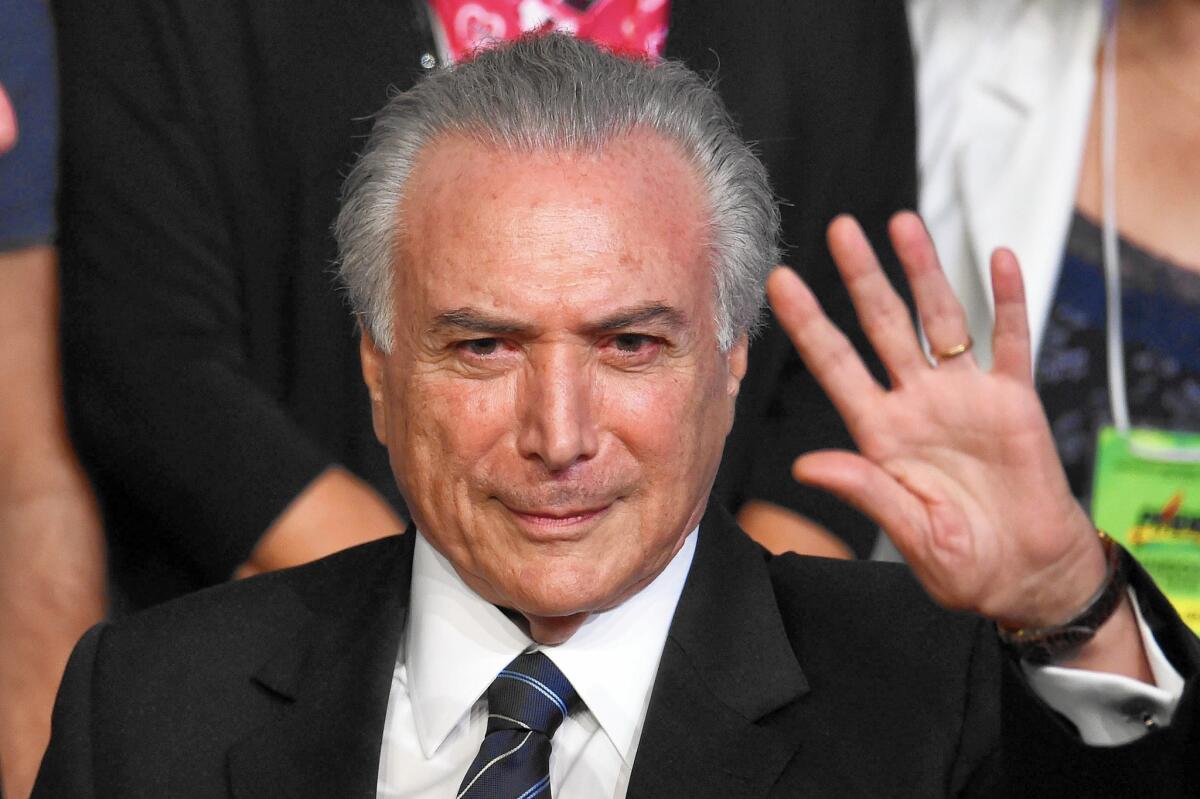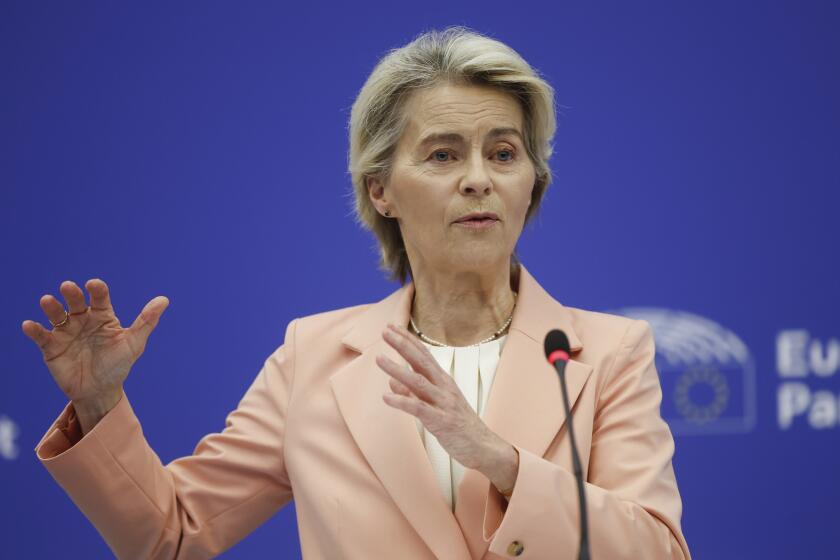New twists in Brazil crisis raise possibility of new elections

Not only is Brazilian President Dilma Rousseff facing the prospect of impeachment, but now her vice president, who would take over if she were deposed, is also the subject of impeachment proceedings.
Though it’s considered unlikely that Brazil’s Congress will recommend Vice President Michel Temer be impeached — he is considered to have more allies in the legislature than Rousseff — the Supreme Court’s order to start the proceedings adds a new twist to the nation’s deepening political crisis.
New allegations also came to light Thursday that make things look worse for Rousseff and Temer. Construction company Andrade Gutierrez donated money to Rousseff’s campaigns that may have come from bribes obtained in the kickback scheme at the state-owned Petrobras oil company, an imprisoned former executive at the construction firm alleged in a plea-bargain confession. If these accusations are proved accurate this year, or if both Temer and Rousseff are removed from office, new presidential elections would be held.
“New elections remain a real alternative, particularly in a context when the crisis continues to deepen,” said Christopher Garman, head of country analysis at the Eurasia Group. The Andrade Gutierrez revelation is more relevant than the second impeachment request, he added. “The way the impeachment battle has unfolded makes the construction of a stable equilibrium a bit more difficult.”
It appeared over the last few weeks that Brazilian elites were uniting around a specific solution to the crisis: Rousseff would be impeached and Temer, of the centrist PMDB party, would take over. The impeachment commission — more than half of whose members face accusations of corruption or serious crimes — recently recommended that the rest of Congress vote to move the motion forward.
But this week, a Supreme Court justice ordered PMDB member and lower house speaker Eduardo Cunha, a defendant in a corruption and money laundering case, to allow an impeachment request against Temer to proceed. The request is based on allegations that Temer broke the same fiscal rules as Rousseff, but his case would be considered separately from hers.
Rousseff has not been charged with any corruption or directly linked to the Petrobras scandal uncovered by the sprawling Lava Jato, or Car Wash, investigation. Her government Thursday vehemently rejected accusations made by the Andrade Gutierrez executive.
Further complicating a swift transition to power for Temer and his party, a number of other proposals have been put forward, including a full election that would replace all of Congress as well as Rousseff and Temer. This would require a constitutional amendment. It has also become clear that Rousseff may be able to assemble the votes needed in the lower house to beat the impeachment case against her. She needs to rally one-third of votes in the lower house to kill the impeachment bid.
Rousseff said this week that she would consider stepping down if all of Congress stepped down too. Garman’s organization, Eurasia, believes there’s only a 25% chance she will finish her full term, which ends in 2018.
The government maintains that the impeachment effort is illegal and could amount to a political coup because the elected Rousseff has not been convicted of any serious crime, as is required by the constitution.
On Thursday, Atty Gen. Jose Eduardo Cardozo told foreign journalists that Cunha initiated impeachment only in an “act of political vengeance,” as the house speaker himself was being investigated.
“That is an original sin from which [this impeachment process] can never be freed,” Cardozo said.
Bevins is a special correspondent.
More to Read
Sign up for Essential California
The most important California stories and recommendations in your inbox every morning.
You may occasionally receive promotional content from the Los Angeles Times.










